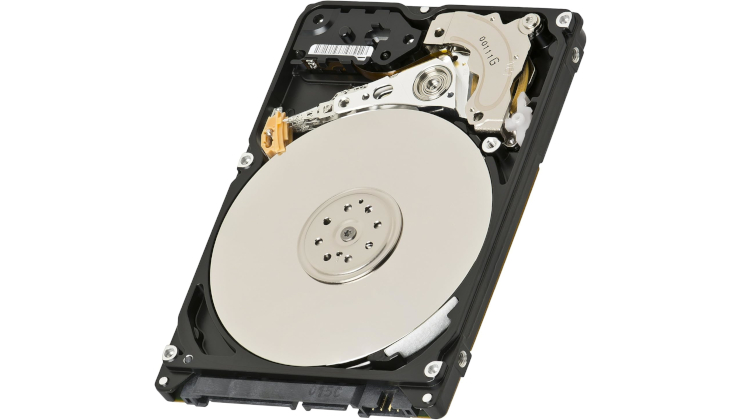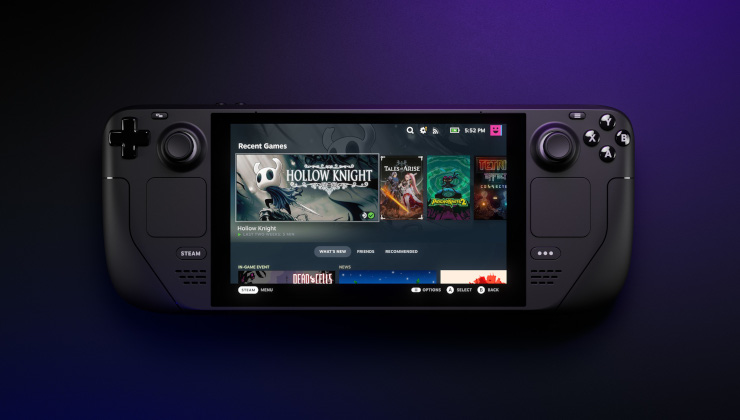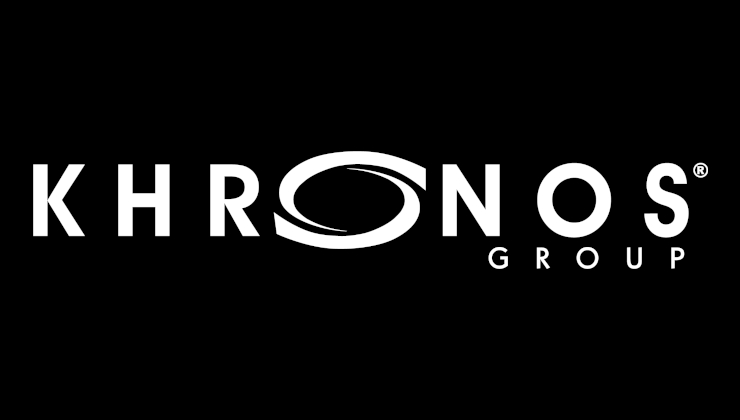Looks like Linux gaming may get yet another boost, thanks to Google? Yes. Backing up previous information on Steam support coming to Chrome OS it looks like the project is still going.
This isn't some kind of wild rumour either, given the previous info with Google's own Kan Liu confirming their plans. This time the report comes from 9to5Google, which points out something being worked on called "Borealis" which appears to be a kind of Virtual Machine with a full copy of Ubuntu and Steam pre-installed and ready to go. It's interesting as they already had Crostini with Debian but it appears they're going a different way for Steam.
While Google now have Stadia to bring gaming to almost any device out there, they of course want more to people to buy their own devices with Chrome OS and enabling more gaming is a big way to push them. This is where Steam comes in, since it already supports Linux and Chrome OS is built from Linux.
Chromebooks are steadily getting more powerful too, as they bring in newer generation Intel processors that can handle a bit of a load and it appears AMD Ryzen Chromebooks will also enter the scene soon. So with Steam on Linux and more powerful internals, things are aligning for more serious gaming on Chrome OS.
Since Chromebooks are incredibly popular devices, being able to tap into another big market would be a welcome boon for Linux gaming as a whole.
Last edited by Eike on 2 Jul 2020 at 10:26 am UTC
Also , i barely trust google as a search engine let alone an OS provider.
Really wondering if in the future Linux will be the only OS(bedsides some BSD distros) that you actually KNOW doesn;t have telemetry baked in :unsure:
Sure you can switch between different guest distributions relatively simply (if you are good with the command line), but why exactly? Who is this for? It's not pretty experience for a Linux user, because you are locked down in a limited VM. And certainly not something your average user would want to go through.
I would find Chromebook way more attractive if it was running a more standard Linux distribution with Google and Android apps nicely integrated into the system. Security-wise something like SELinux with a signed kernel would be perfectly adequate for keeping the system safe and sound. No unnecessarily paranoid VM needed.
Yesterday a youtuber from a tech channel I follow, said he will never use Linux on his PCs because "I like to do work on my computer, not work on my computer". The poor bastard, while being a tech nerd, completely missed that he actually do a ton of his work on a Linux machine...
Quoting: WorMzyDon't chromebooks use ARM processors?Apparently not all of them.
Quoting: Liam DaweChromebooks are steadily getting more powerful too, as they bring in newer generation Intel processors that can handle a bit of a load and it appears AMD Ryzen Chromebooks will also enter the scene soon.
Quoting: WorMzyDon't chromebooks use ARM processors? If so, then they need *something* to emulate a x86 processor in order to make this a worthwhile exercise. I guess that's why they've gone for a VM solution (qemu can emulate x86: https://www.qemu.org/docs/master/system/target-i386.html). No idea what the performance will be like though.I think wine works on arm to a certain extent? https://wiki.winehq.org/ARM
I can't get any more excited about Chrome OS than I can about Android ... both of which are based on Linux, but neither of which are actually Linux --- thus the need for a VM to run Linux's Steam client.
I really don't feel gaming on Chrome OS is any more appropriate to Linux gaming than gaming on Android is, really.
Quoting: WorMzyDon't chromebooks use ARM processors?There are Intel and AMD Chromebooks as well.
Quoting: NanobangWhenever I think of Google using Linux, I think of how Google make things from that can't be used in Linux.Well, one thing to remember here: Linux is just the kernel! It's not a full OS like MS-Windows, MacOS, etc. So Android & ChromeOS are Linux but that doesn't mean they're compatible with GNU/Linux distros and LSB-compliant.
I can't get any more excited about Chrome OS than I can about Android ... both of which are based on Linux, but neither of which are actually Linux --- thus the need for a VM to run Linux's Steam client.
I really don't feel gaming on Chrome OS is any more appropriate to Linux gaming than gaming on Android is, really.
So this makes would make it rather questionable if it would help for the type of Linux gaming discussed here if Steam and the games would be native versions for ChromeOS. But as they seem to have a VM with Ubuntu it will surely massively increase the audience / possible customers for SteamOS compatible games which might attract more developers. Though a VM seems rather inappropriate. I remember the Wrapper-stuff VirtualProgramming did and that had some issues that never got fixed (or the early "ports" didn't get patched).
So the question is, how long it will stay in that state and if google tries to "force" getting native ChromeOS versions and how Valve and other developers will react to that. I think it will have an effect short-term, but long-term I'm very unsure where this will be heading. But I'll keep hoping that developers will realize that platform independence is the best way to keep their customers with dynamic OS environment situations as we're experiencing shifts right now.
All that said, my personal feeling about Google is: Their engineers are amazing but I don't trust their management.
Linux support on ChromeOS is cool, but I 100% expect it to be cancelled at some point in the future.
why have 2 abstraction layers, Crostini for debian and an virtual machine for ubuntu + steam?
an virtual machine seems like an waste of resources, but if they are doing it, maybe crostini was not good enough...
what will hapen when people try to install games from gog? they will install on crostini or this ubuntu?
looks like they are doing an android all over again, looks like google and microsoft see's linux as an runtime to run applications, just like java and flash were.
instead of native support for linux applications we have this abstraction layers, WSL on windows, crostini and this on chromeOS.
on windows i can understand since its a different kernel, but on chromeOS?
i dont know what they are doing but i dont like the trend here, looks like an walled garden.
Last edited by elmapul on 2 Jul 2020 at 8:02 pm UTC
Quoting: elmapuli dont know what they are doing but i dont like the trend here, looks like an walled garden.What else should we expect from Google?
Quoting: NanobangWhenever I think of Google using Linux, I think of how Google make things from that can't be used in Linux.All that stuff is irrelevant to this case. What's relevant is, Chrome OS has a significant amount of desktop-like market share, and this will allow people with a Chromebook to buy and play Linux, but not Windows, games on Steam (except perhaps via Proton). And they've clearly got plans to grow that share further.
I can't get any more excited about Chrome OS than I can about Android ... both of which are based on Linux, but neither of which are actually Linux --- thus the need for a VM to run Linux's Steam client.
I really don't feel gaming on Chrome OS is any more appropriate to Linux gaming than gaming on Android is, really.
Therefore, if this happens it will drastically increase the market share for Linux gaming. It is, potentially, a really huge win.
Heck, no matter how dim I think this is when they could instead just allow ChromeOS to be more than crippleware, the fact is that it completely sidesteps all questions of whether ChromeOS is "real" Linux* because the games will be running on Ubuntu.
* Android is technically Linux . . . but it's not GNU, which makes it drastically different from normal Linux. As far as I can tell, ChromeOS is true GNU/Linux, just with an unusual desktop environment and deliberately crippled. It's just a distro that includes very little software and really doesn't want to let you use the command line, install more software or otherwise do anything not included in the minimalist GUI. But there's pretty much nothing about it that isn't Linux.
Last edited by Purple Library Guy on 2 Jul 2020 at 11:28 pm UTC
Quoting: LinasI find Googles direction for Chromebooks very confusing. It's supposed to be this simple unbreakable mom'n'pop computer. But then they add Crostini, which is a full-blow VM, which doesn't even allow calling the host kernel, or direct access to the hardware. Literally everything is virtualized. That's why it has taken them forever to implement basic features such as clipboard sharing, or access to the filesystem. This is the exact opposite of simple.Users don't see any of that though. My wife has one. All she ever uses a computer for is web browsing, email (in the browser), and occasional small documents. These days a bit of teleconferencing (in the browser). Since that's basically all the Chromebook offers, it's very hard for her to end up accidentally doing something different which would confuse her. So it's a pretty good fit, and it cost very little money--like a third to a quarter as much as my laptop, a fifth or less as much as my daughter's Macbook Pro, less than most phones--and it's been pretty durable.
Even for her it's not perfect. We both find Google Docs annoying--you can make a document, fine, but if you want to do something with it, like save it somewhere, Google Docs is very reluctant to accommodate you and insists on metaphors which are quite different from every other office program in existence. Similarly, ChromeOS doesn't really want you to find files, like on your computer, because as far as Google is concerned they're all supposed to be on the web. But on balance, for use cases like hers the little buggers offer very solid value for money.
Quoting: Purple Library GuyThat's exactly my point. Your wife is the original target demographic for Chromebooks.Quoting: LinasI find Googles direction for Chromebooks very confusing. [...] full-blow VM [...] This is the exact opposite of simple.Users don't see any of that though. My wife has one. All she ever uses a computer for is web browsing, email (in the browser), and occasional small documents.
By adding Crostini they more or less acknowledge that you need a real Linux distribution if you want to do some productive work. Like run Gimp, Inkscape, Audacity, or anything else that even a non-techie user may want to do from time to time. But then they do it in the most obscure way possible, so that a non-techie user never will.
Just take a look at [this huge FAQ](https://chromium.googlesource.com/chromiumos/docs/+/master/containers_and_vms.md#FAQ), and count how many times "currently, no" is the answer.
Quoting: tuubii dindt expect much but using an different enviroment to run steam instead of crostini, is disapointingQuoting: elmapuli dont know what they are doing but i dont like the trend here, looks like an walled garden.What else should we expect from Google?
Quoting: WorMzyDon't chromebooks use ARM processors? If so, then they need *something* to emulate a x86 processor in order to make this a worthwhile exercise. I guess that's why they've gone for a VM solution (qemu can emulate x86: https://www.qemu.org/docs/master/system/target-i386.html). No idea what the performance will be like though.holyshit then...
emulating x86 then emulating windows apis on proton, what could go wrong besides the performance going from 60 to 1 fps...
Quoting: LinasI find Googles direction for Chromebooks very confusing. It's supposed to be this simple unbreakable mom'n'pop computer. But then they add Crostini, which is a full-blow VM, which doesn't even allow calling the host kernel, or direct access to the hardware. Literally everything is virtualized. That's why it has taken them forever to implement basic features such as clipboard sharing, or access to the filesystem. This is the exact opposite of simple.the issue is that there is no perfect runtime if you can just skip it.
Sure you can switch between different guest distributions relatively simply (if you are good with the command line), but why exactly? Who is this for? It's not pretty experience for a Linux user, because you are locked down in a limited VM. And certainly not something your average user would want to go through.
I would find Chromebook way more attractive if it was running a more standard Linux distribution with Google and Android apps nicely integrated into the system. Security-wise something like SELinux with a signed kernel would be perfectly adequate for keeping the system safe and sound. No unnecessarily paranoid VM needed.
if java was perfect security wise, but the user installed an python application and python was not perfect, then the user could still get infected.
if python were perfect, than an malicious webpage still could infect the user.
if html, css, javascript and the browsers were perfect, then the user could still get infected downloading an native application.
google tried to solve this by making the browser the only runtime on chromeOS but the developers didnt ported their applications to the web standards...
Quoting: M@GOidI see ChromeOS as a good way to trick people too scared of Linux to use it. Since it didn't have Linux on its name nor it is easily found in its literature, people actually try it because of the weight of the Google and Chrome names.i saw this video yesterday...
Yesterday a youtuber from a tech channel I follow, said he will never use Linux on his PCs because "I like to do work on my computer, not work on my computer". The poor bastard, while being a tech nerd, completely missed that he actually do a ton of his work on a Linux machine...
great channel btw
Technology Connections, but the issue is:
he is right.
just try to do something out of the curve on linux and you may struggle with it.
i had to install retro arch 3 times, because some versions were broken (i dont know if the version that is working is the deb, snap or flatpak version but it is... i guess, because i tried to install an core on it other day and got an segfault, so maybe i should try the snap or flatpak to see if this part of the software actually works there..)
i have 2 versions of vlc installed, cant remember why
and when i was using 14.04, i tried a lot of versions of blender and end up downloading it and unzip and running because all of the install methods were broken.
https://github.com/Elmapul/daily-scripts/tree/master/snap-native-flatpak/blender
i like to setup my entire enviroment before i start doing some work, to avoid the possibility of realizing that something is not working during an job, then trying to fix and end up breaking the instalation having to install everything again from an clean install.
but now, i wasted so much time troubleshooting only to something to break and end up having to reinstall everything that i got unmotivated.
linux can be a real pain sometimes.
Last edited by elmapul on 3 Jul 2020 at 2:36 am UTC













 How to setup OpenMW for modern Morrowind on Linux / SteamOS and Steam Deck
How to setup OpenMW for modern Morrowind on Linux / SteamOS and Steam Deck How to install Hollow Knight: Silksong mods on Linux, SteamOS and Steam Deck
How to install Hollow Knight: Silksong mods on Linux, SteamOS and Steam Deck